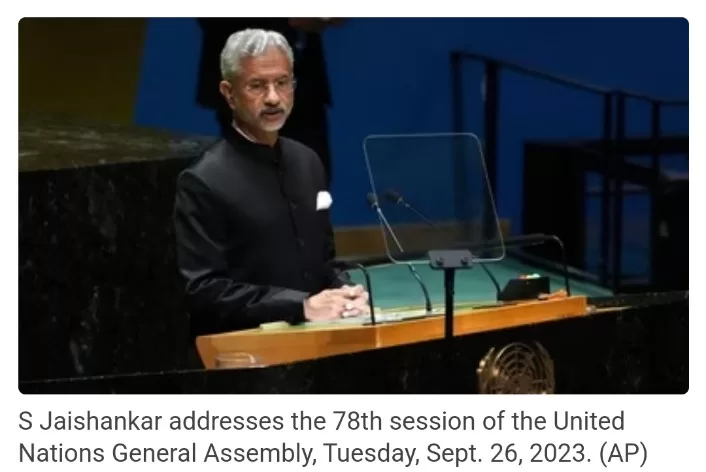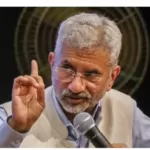Speaking at the United Nations General Assembly (UNGA), External Affairs Minister S. Jaishankar underscored the significance of unwavering respect for territorial integrity and non-interference in internal affairs. His remarks emphasized the need for consistent adherence to these principles and called for a resolute stance against terrorism, extremism, and violence.
Jaishankar’s address encompassed several pressing global issues. He condemned the injustice of vaccine apartheid and called for equitable vaccine distribution. Additionally, he stressed the importance of robust climate action and the avoidance of historical responsibilities evasion.
The minister cautioned against leveraging market power to divert essential resources from the needy to the affluent. Furthermore, he firmly asserted that responses to terrorism and extremism should not be influenced by political convenience.
Jaishankar articulated the necessity of establishing a fair, equitable, and democratic world order. He emphasized that the current scenario, where a select few nations shape the global agenda and define norms, is unsustainable and will inevitably face challenges.
He urged the international community to ensure that rule-makers do not subjugate rule-takers, advocating for a collaborative approach to shape a more just world order.
The External Affairs Minister highlighted India’s transformation from the era of non-alignment to becoming a ‘Vishwa Mitra’ or a friend of the world. He cited India’s expanding engagements with various nations, including its active participation in groups like the QUAD, BRICS, and I2U2, as evidence of its evolving global role.
Jaishankar also celebrated India’s recent legislative achievement—the Women’s Reservation Bill, which reserves one-third of legislative seats for women. He portrayed India as a nation with deep-rooted democratic traditions that are continuously modernized to align with contemporary needs.







